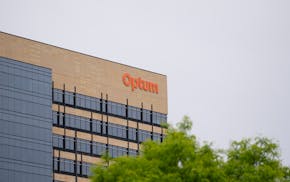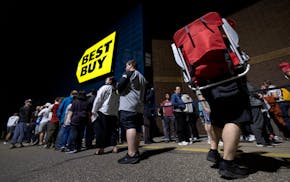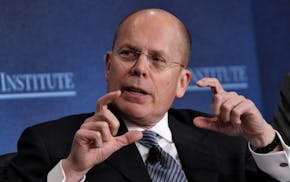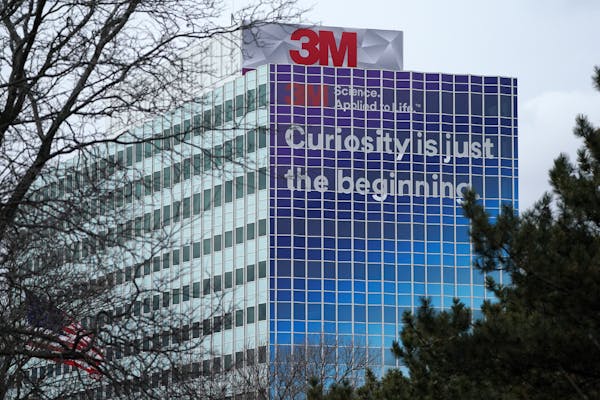For nearly 50 years, the successes and failures of 3M have been part of an exclusive report card for the entire American economy.
As one of just 30 members of the Dow Jones industrial average stock index, the Maplewood-based conglomerate's swings have influenced investors, bankers, regulators and lawmakers on a daily basis.
That position of prestige could be in jeopardy.
By the end of the year, 3M plans to spin off its health care division — a quarter of the company's $34 billion in annual revenue. The company's stock price has also suffered a 36% decline in the past five years, the worst performance among the index's companies.
The keepers of the Dow — owned and run by S&P Global — don't tip off their intentions ahead of any changes, which do not occur on any set schedule.
"Changes in response to corporate actions and market developments can be made at any time," reads the official index methodology. "Any potential impacts on index constituents from a spin-off are evaluated by the Index Committee on a case-by-case basis."
3M has the second-longest current tenure on the Dow. Only Procter & Gamble — maker of Tide, Pampers and Olay — has been included longer among current members.
Since 3M was added to the index in 1976, the Dow's makeup has changed 22 times, including in 2012 when UnitedHealth Group, Minnesota's largest company, was added.
The index was most recently changed in 2020 when Amgen, Honeywell and Salesforce were added and Exxon Mobil, Pfizer and Raytheon were dropped.
At the time, S&P Global said the move was in response to an Apple stock split and was meant to "help diversify the index by removing overlap between companies of similar scope and adding new types of businesses that better reflect the American economy."
"Realistically, though, it's usually based on market cap — and changes are made in batches," said Julian Vogel, finance professor at San Jose State University. "3M is not alone in being in trouble. At the beginning of the year it was Walgreens and Verizon with the greatest potential to fall off the index."
3M now ranks among the smallest members of the Dow's industrial average. By market capitalization it ranks 27th and by annual revenue it ranks 26th — and that's before 3M sheds about a quarter of its business in the planned spinoff.
Perception can also play an important role for who gets included on the index.
"You see this with banking right now — more important than the hard numbers is psychology," Vogel said. "So if 3M is kicked from the index, that is an indication not necessarily of a troubled company but a company that is perceived to be troubled."
The Dow Jones industrial average, created in 1896, began with 12 industrial companies and has grown and shifted composition as the U.S. economy has become dominated by services rather than manufacturing.
The Corporate Finance Institute writes that the index is changed "when one or more components experience financial distress that renders it a less important company in its sector (or) when there is a significant shift in the economy that needs to be reflected in the composition."
There are several other Dow indices that track utilities, transportation and international stocks.
The S&P 500 is the more closely watched index as it represents a much wider swath of the economy. Still, the Dow holds symbolic weight, and it brings extra analyst attention and institutional investment to the member companies.
Craig Johnson, chief market technician at Minneapolis-based Piper Sandler, said most of the Dow's blue-chip stocks are among the largest companies in the stock exchange.
"If you look through all of the Dow stocks, they all are in the top half of the S&P 500."
He said after the health care split, 3M could be in the bottom half of the S&P 500.
The question then turns to what companies are next in line for inclusion in the Dow.
Johnson says the absence of communication/media companies and food products companies are glaring holes in the index's current makeup. He wouldn't be surprised if these types of companies were added in place of 3M should the index be changed.
"If I had to give you a top five," Johnson said, "it would probably be in this order: Alphabet, Meta, Netflix, General Mills and Starbucks."

UnitedHealth sues the Guardian, alleging defamation in coverage of nursing home care

Prices for international flights drop as major airlines navigate choppy economic climate
Minnesota's med spa industry rises in popularity — and with little regulation

Hundreds line up at Best Buy to nab Nintendo Switch 2, in scene like '90s opening parties

